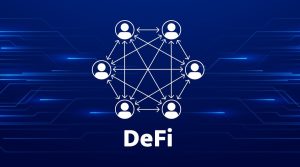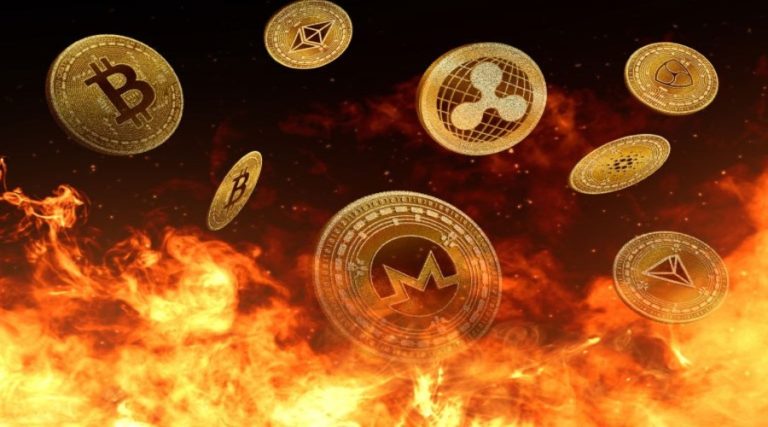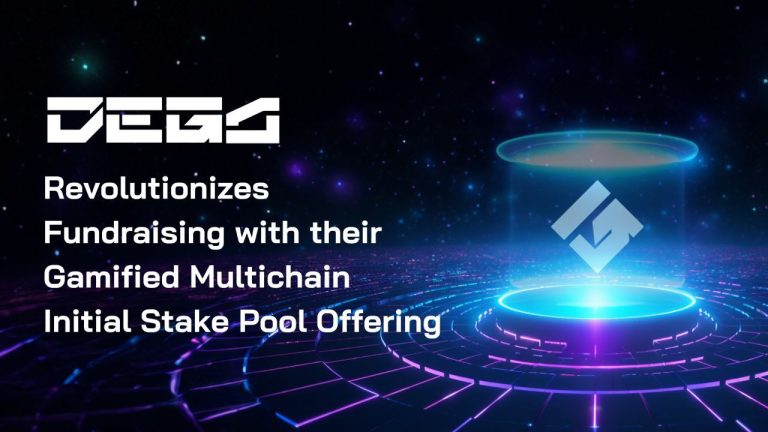
Use Cases of DeFi in Different Industries: Real Estate, Gaming, Supply Chain
The world of decentralized finance (DeFi) has gained significant attention in recent years, revolutionizing traditional financial systems. DeFi, built on blockchain technology, offers various use cases in different industries, enabling increased efficiency, transparency, and accessibility. In this article, we will explore how DeFi is being utilized in three specific sectors: real estate, gaming, and supply chain. By leveraging the power of DeFi, these industries are experiencing transformative changes and unlocking new possibilities.
Introduction
As the digital landscape evolves, traditional industries are adapting to innovative technologies to streamline processes and enhance user experiences. DeFi, an abbreviation for decentralized finance, refers to the ecosystem of financial applications and services built on blockchain technology. Unlike traditional centralized systems, DeFi operates on a peer-to-peer network, eliminating intermediaries and enabling direct interactions between participants.
Understanding DeFi
Before delving into the specific use cases of DeFi in various industries, it is crucial to grasp the fundamental concept of decentralized finance. At its core, DeFi aims to provide open and inclusive financial services to anyone with an internet connection. Through blockchain technology, smart contracts, and digital assets, DeFi applications facilitate financial activities such as lending, borrowing, trading, and investment.
DeFi in Real Estate
The real estate industry, known for its complex processes and paperwork, is experiencing a significant transformation through the adoption of DeFi solutions. Here are some prominent use cases of DeFi in real estate:
Streamlining Property Transactions
Traditionally, property transactions involve multiple intermediaries, lengthy processes, and substantial paperwork. With DeFi, the use of smart contracts automates and streamlines the entire process. Smart contracts are self-executing agreements that automatically enforce the terms and conditions encoded within them. By leveraging DeFi, property transactions can become more efficient, secure, and cost-effective.
Fractional Ownership
DeFi also enables fractional ownership of real estate assets. Fractional ownership refers to dividing a property into multiple digital shares, allowing investors to own a portion of the property. These digital shares can be traded on decentralized exchanges, providing liquidity and access to real estate investment opportunities to a broader range of individuals.
Tokenizing Real Estate Assets
Tokenization is another significant advancement facilitated by DeFi in the real estate industry. By converting real estate assets into digital tokens, property owners can unlock liquidity and enable fractional ownership. Tokenization also opens up new avenues for property investment, allowing individuals to invest in properties globally without the need for significant capital.
DeFi in Gaming
The gaming industry has embraced blockchain technology and DeFi to revolutionize in-game economies and enhance player experiences. Here are some notable use cases of DeFi in gaming:
In-Game Economies
In many games, players spend countless hours accumulating virtual assets, currencies, and items. DeFi allows these in-game assets to have real-world value by leveraging blockchain technology. Players can trade, sell, and utilize their virtual assets across different games or even in the real world, creating a new economy within the gaming ecosystem.
Tokenized Game Assets
DeFi enables the tokenization of game assets, transforming them into non-fungible tokens (NFTs). NFTs are unique digital assets that can represent in-game items, characters, or other virtual possessions. These NFTs can be bought, sold, and traded on various decentralized marketplaces, giving players true ownership and control over their virtual assets.
Play-to-Earn Models
DeFi has introduced the concept of play-to-earn, where players can earn cryptocurrency or tokens by participating in games. Instead of spending money to acquire in-game assets, players can earn rewards by completing tasks, achieving milestones, or contributing to the game’s ecosystem. This innovative model incentivizes active player engagement and provides economic opportunities within the gaming community.
DeFi in Supply Chain
The supply chain industry involves the movement of goods and services from suppliers to consumers. DeFi solutions offer numerous benefits and improvements in this sector:
Traceability and Transparency
Blockchain technology integrated with supply chain processes enhances traceability and transparency. Each transaction and movement of goods can be recorded on the blockchain, ensuring a transparent and immutable audit trail. This transparency reduces the risk of fraud, counterfeiting, and unethical practices, fostering trust between stakeholders.
Smart Contracts for Efficient Transactions
Smart contracts play a vital role in supply chain management by automating and optimizing transactions. These self-executing agreements enforce predefined conditions and trigger actions once the conditions are met. By leveraging DeFi-powered smart contracts, supply chain participants can streamline documentation, reduce paperwork, and improve overall efficiency.
Inventory Financing
DeFi enables inventory financing by utilizing digital assets and smart contracts. Businesses can tokenize their inventory and offer it as collateral to access decentralized lending platforms. This allows companies to obtain liquidity based on their inventory value, facilitating smoother cash flow management and reducing reliance on traditional financing methods.

Challenges and Risks of DeFi in Different Industries
While DeFi brings numerous advantages, it is essential to acknowledge the challenges and risks associated with its implementation:
- Regulatory Concerns
The regulatory landscape surrounding DeFi is still evolving, and different jurisdictions may have varying approaches. Compliance with existing regulations and adapting to potential regulatory changes pose challenges for businesses operating in DeFi. Collaborations between industry stakeholders and regulators are crucial for fostering a balanced and supportive environment for DeFi growth.
- Security Risks
As with any digital system, DeFi platforms are susceptible to security vulnerabilities. Smart contract bugs, hacking attempts, and phishing attacks are risks that need to be addressed. Robust security measures, audits, and ongoing monitoring are necessary to mitigate such risks and ensure the safety of user funds and data.
- Scalability Issues
The scalability of DeFi networks is another significant challenge. As the user base and transaction volumes increase, blockchain networks can experience congestion and slower transaction speeds. Ongoing research and development efforts focus on addressing scalability concerns through technological advancements like layer-two solutions and interoperability protocols.
Future Outlook and Potential Growth
The use cases of DeFi in various industries are still in their early stages, but the potential for growth is immense. As more businesses and individuals recognize the benefits of decentralized finance, adoption is expected to increase rapidly. Collaboration between traditional industries and DeFi innovators will drive further innovation, resulting in novel solutions and advancements.
The future of decentralized finance (DeFi) holds tremendous potential for growth and disruption across various industries. As the technology continues to mature and gain mainstream attention, the possibilities for innovation and widespread adoption are becoming increasingly evident.
One of the key drivers of DeFi’s future growth lies in its ability to address the limitations and inefficiencies of traditional financial systems. By leveraging blockchain technology, smart contracts, and decentralized networks, DeFi offers a more inclusive, transparent, and efficient alternative to traditional financial services. This disruptive potential has attracted the attention of both individuals and institutions, leading to increased investments and collaborations within the DeFi space.
Real estate, gaming, and supply chain industries are just the beginning of the use cases for DeFi. As more industries recognize the benefits of decentralized systems, we can expect to see DeFi expanding into areas such as healthcare, insurance, trade finance, and more. The ability to streamline processes, reduce intermediaries, and increase trust and transparency makes DeFi an attractive solution for a wide range of sectors.
Moreover, advancements in technology and infrastructure are addressing the scalability and interoperability challenges that DeFi currently faces. Layer-two solutions, cross-chain interoperability protocols, and advancements in blockchain consensus mechanisms are paving the way for a more robust and scalable DeFi ecosystem. These developments will not only enhance the user experience but also attract institutional investors and larger enterprises to explore DeFi opportunities.
Regulatory frameworks for DeFi are also evolving, aiming to strike a balance between innovation and consumer protection. While regulations may pose challenges, they can also provide a framework for widespread adoption and mainstream integration of DeFi solutions. Collaborations between industry participants, regulators, and policymakers will be crucial in shaping the regulatory landscape and fostering a favorable environment for DeFi growth.
Conclusion
Decentralized finance has opened up a world of possibilities across different industries. In real estate, gaming, and supply chain sectors, DeFi is revolutionizing traditional processes, enhancing efficiency, and creating new economic models. However, challenges and risks must be carefully addressed to foster the responsible growth of DeFi. As technology evolves and adoption expands, the future of DeFi looks promising, reshaping the way we interact with financial systems and unlocking opportunities for all.
FAQs:
1. How secure is DeFi in different industries? DeFi platforms prioritize security through various measures such as audits, bug bounties, and secure coding practices. However, risks still exist, and users should exercise caution and choose reputable platforms with robust security protocols.
2. Can DeFi solutions be regulated? Regulatory frameworks for DeFi are still evolving, and different jurisdictions have different approaches. Collaboration between industry participants and regulators is essential to establish a balanced regulatory environment.
3. What are the benefits of DeFi in real estate? DeFi streamlines property transactions, enables fractional ownership, and tokenizes real estate assets, providing increased efficiency, liquidity, and accessibility to the real estate market.
4. How does DeFi enhance gaming experiences? DeFi introduces real-world value to in-game assets, allows tokenization of game items through NFTs, and enables play-to-earn models where players can earn cryptocurrency or tokens by engaging with games.
5. How does DeFi improve supply chain management? DeFi enhances traceability and transparency, automates transactions through smart contracts, and enables inventory financing, providing benefits such as reduced fraud, increased efficiency, and improved cash flow management.


